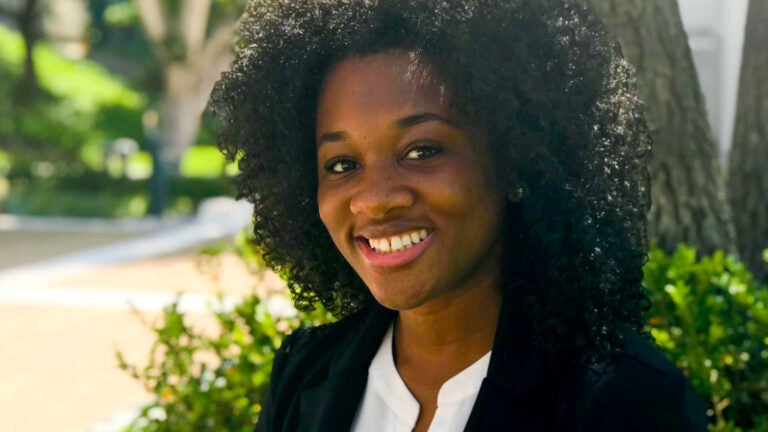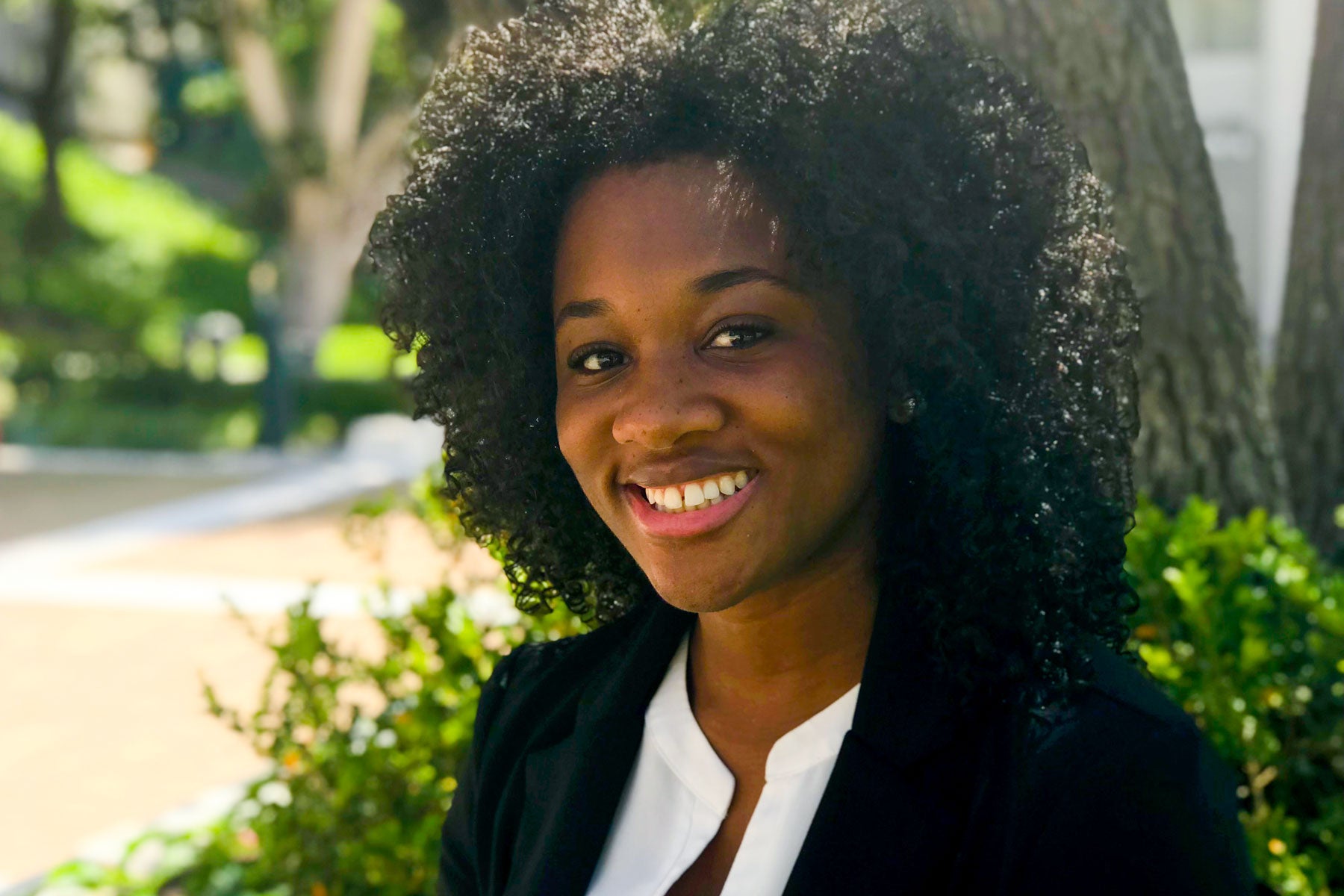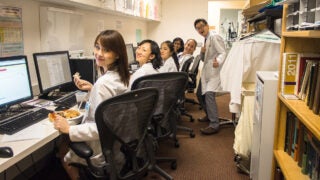
Taking the path toward a degree in global medicine
Sandrine Kyane dreams big about working with worldwide agencies to solve urgent health issues for future generations

Sandrine Kyane is a graduating student in the Keck School of Medicine of USC’s Master of Science in Global Medicine program. She spoke with Paul Boutin of USC News about her search for an educational path to her career goal of running hospitals.
I knew I wanted to transform lives through health care, but I had no idea how to get there.
Growing up in Cameroon, I had the desire to help communities with insufficient medical resources. My father used his own funds to build a 10-mile road so that people could reach the nearest hospitals and clinics to seek care. His work inspired me to pursue my own aspirations. I aimed to run a hospital or a set of medical centers in underserved areas around the world, staffed by passionate physicians equipped with the best resources and knowledge.
I approached the Keck School while looking into getting an MD, but found a different path I did not even know existed: a master of science degree in global medicine, which focuses on the skills needed to solve urgent health issues worldwide. The program has a management track that concentrates on skills such as global health care operations management, project management, process improvement, high-performance organization, accounting, marketing, finance, and business strategy. These are the fundamentals necessary to establish a health care facility, and to implement the best solutions to improve patient conditions in hospitals. Taking the initiative to pursue the M.S. in global medicine before an MD helped me synthesize all my ambitions into one.
Beyond the classroom curriculum, I served as an intern at Keck Medicine of USC, where I conducted a project in health care operations improvement. As a team, we worked with liver, kidney and lung transplant clinics to identify recommendations that would increase the clinic’s efficiency and “reduce non-value times to the patient journey,” by which we mean reducing the amount of time they spend waiting to see a health care professional.
After that, I traveled to Brazil to work on the implementation of a health care service line for children with neurological developmental disorders. Children in need of a pediatric neurologist had to wait as long as six months, though many of those waiting could be seen faster by another specialist. We partnered with the USC Marshall School of Business and Children’s Hospital of Brasilia to identify the best recommended treatment path for each child.
Student sets out to understand medicine and business
My time at the Keck School allowed me to gain an understanding that many disciplines influence health and wellness.
Sandrine Kyane
These experiences formed and shaped my aspirations in detail. They also inspired me to continue my path in medicine by expanding my knowledge in data operations management, a field as complex and challenging as clinical medicine, and one with great importance for managing the provision of medical care. People who understand both medicine and business are critical to bringing modern therapies to as many people as possible by helping to run health care facilities at their best and most efficient capacities. My time at the Keck School allowed me to gain an understanding that many disciplines influence health and wellness, and gaining an education beyond clinical training can only move me closer toward my goal of making a difference in the lives of others.
My mother always says, “When something is for you, it’s for you! You may travel the world and seek something else, but you won’t avoid what was meant for you.” It’s in the heart that you will find your true purpose in life and what you are called to be. I truly believe that God had a plan in mind for me, but it was up to me to find it. The Keck School’s faculty and advisers, as well as its students, and the people with whom I was privileged to work, helped me find my personal path.
I am grateful for the chance to acquire the skills it will take to improve the lives of people around the world — people who today are unable to receive the care others would gladly give. Just as my father built a road to medical services, I hope to work with global agencies such as the United Nations to bring better health care to future generations. I have been told that I dream big. But if dreaming big can cure a life, why should I stop?



